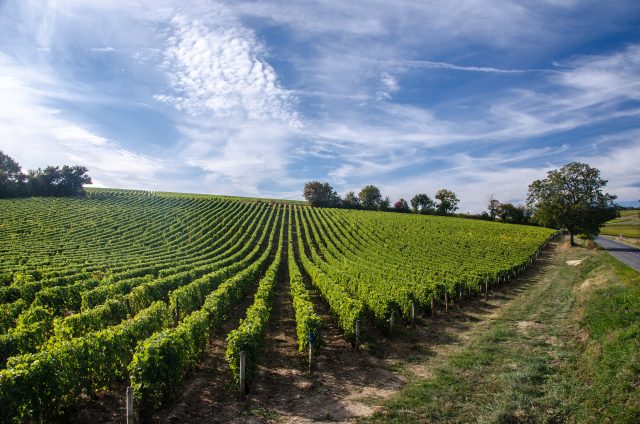Loire Valley winemakers turn to tech in sustainability push
As producers worldwide face climate pressures, winemakers in the Loire Valley are embracing technology. From warming wires to digital vineyard monitoring, producers are finding new ways to tackle warming temperatures and damaging frosts.

As climate change continues to reshape vineyards across the globe, The Loire Valley, often seen as a bellwether for shifting conditions, is responding with an arsenal of sustainability-focused techniques. At a recent sustainability focused dinner in London, Vianney de Tastes, general manager of Château Soucherie, discussed how the region’s producers are balancing organic viticulture with technological interventions to ensure viable harvests.
One strategy employed by some Loire winemakers is the use of warming wires to combat spring frosts. De Tastes explained that while larger producers may take a hands-off approach, he sees such technology as a necessity sometimes. “My view is to produce wine,” he ultimately stated. “When there is frost, I need to use these wires to make wine.”
Château Soucherie, a 25-hectare estate near Angers producing AOC Savennières, Chaume 1er Cru, Anjou Blanc and Coteaux du Layon, has been certified organic for more than a decade. De Tastes noted that working organically in the Loire is easier than in some other regions, naturally, such as Bordeaux due to lower disease pressure and humidity. However, frost remains a persistent challenge. “We’ve had three years of big frost,” he said, highlighting the need for adaptive solutions.
Partner Content
E-Terroir and the sustainability toolbox: digital innovation for a sustainable future
Beyond frost protection, winemakers are harnessing digital tools to refine vineyard management and improve sustainability. This is where the e-Terroir platform comes in. The platform is an advanced vineyard monitoring system; helping producers track climate data, soil health, and disease risks in real time. By leveraging satellite imagery, weather forecasts, and predictive analytics, the system enables growers to make informed decisions that reduce chemical use and improve water efficiency.
Sustainability efforts in the Loire go beyond individual estates. Loire Propriétés, one of the region’s major producers, has committed to environmental certification across much of its portfolio. 71% of its wines are HVE certified and 76% carry the Committed Winegrowers certification.
Meanwhile, smaller estates such as Domaine Ratron – Clos des Cordeliers are maintaining biodiversity and focusing on soil health to bolster resilience.
The combination of organic viticulture, climate-focused certifications, and technological adaptations reflects a pragmatic approach to sustainability in the Loire. Winemakers must now navigate the fine line between traditional methods and modern interventions. All the while, ensuring that quality remains uncompromised in the face of a changing climate.
Related news
When ‘green’ means drinking differently: Laura Catena on Domaine EdeM




